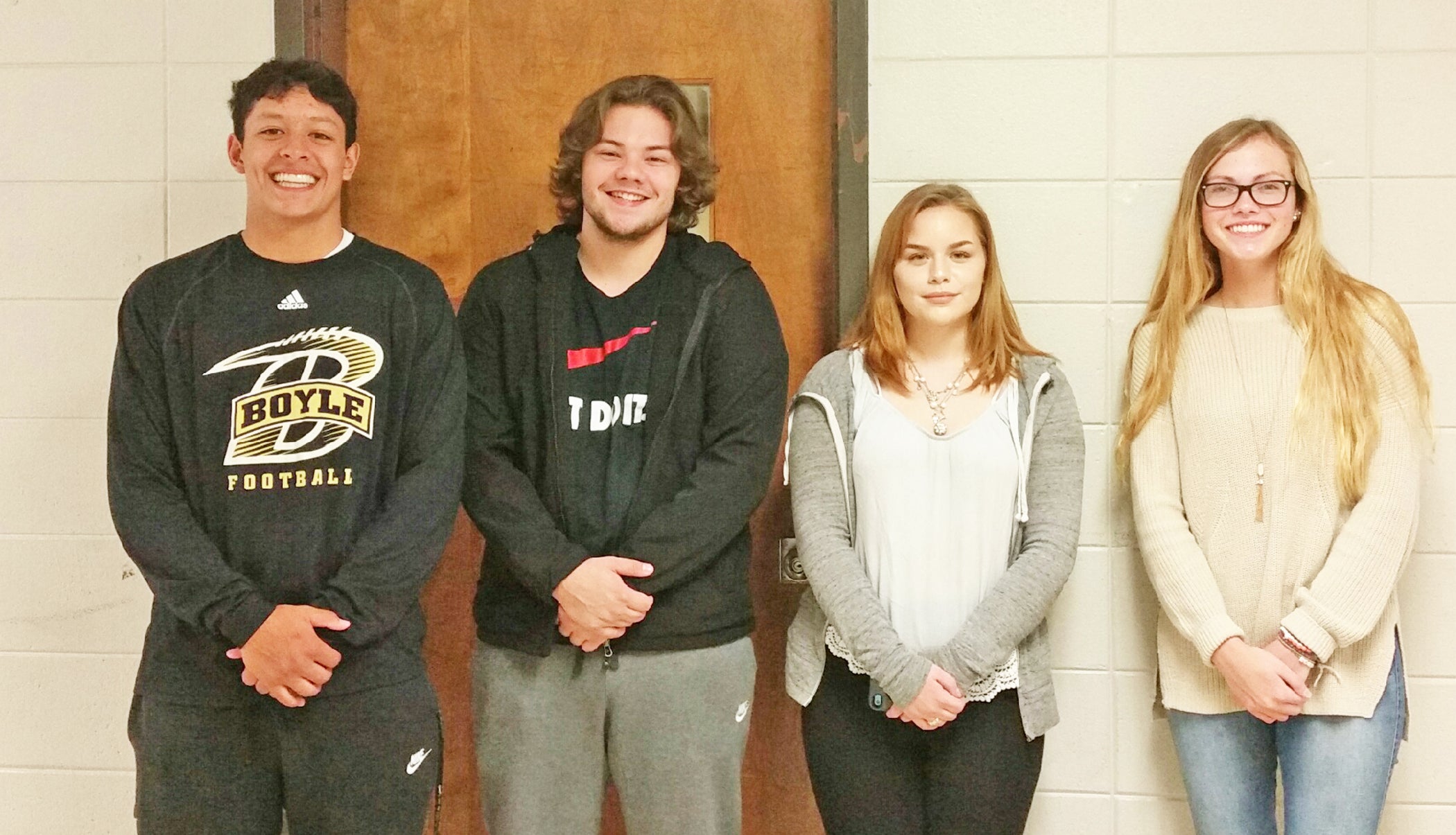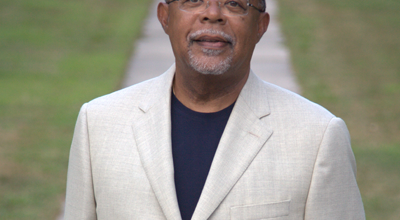Students sound off on their future
Published 10:52 am Wednesday, November 8, 2017
For some potential future educators, the changing pension plan is a big concern.
“It’s just disheartening,” said Larkin Montgomery, a senior at Boyle County High School. “I’m not going to have any benefits for retirement. Why would I go into a program if I can get nothing out of it?”
Her concerns were echoed by classmate Emily Craig, “I thought it would be a great way to help other people. I just don’t think it would be a viable option right now.”
The two were sharing their concerns, along with classmates and fellow potential future educators Austin Birchfield and Kaden Gervacio.
“It’s making the decision harder,” Gervacio said.
He said he had always planned on having a family when he grew up, but now feels that going into education would make it harder to support a family.
Burchfield agreed.
“The job of a teacher is to educate — you’re there to help other people. But you also have to look out for yourself and be able to provide for yourself,” he said.
The students said they’ve looked things up about the proposed plans on their own and not exactly a continuous conversation in class, but that the topic has been on the minds of a lot of teachers and is heard a lot in the halls.
“I feel like it’s really discouraging a lot of other people. Not just us, but even the future — freshman and sophomores are hearing about it. It’s discouraging people from going into that profession,” Burchfield said. “People want to help other people, but if you can’t provide for yourself and you can’t make a living off of it, it’s not something you want to do.”
Montgomery shared that it is not only affecting her future career, but it’s going to impact her parents, too, as her mom is a teacher and her dad is a police officer.
“My mom has (talked about it) … She’s so close to the 27-year mark. It would affect her greatly,” she said, and shared it was her mom who inspired her to want to become a teacher in the first place.
“I see in the classroom how much she makes a difference in the kids’ lives. I want to do that, too,” Montgomery said.
Now, she said she feels like she might have to move to a different state if she wants to teach, a concern shared by Birchfield, Craig and Gervacio.
All but Craig said they had planned to return to the Danville-Boyle County community to teach after college.
“I prefer to stay in the state to teach,” Birchfield said. “My ultimate goal would be, I’d like to come back here. I do like this community. This is a good community to live in and raise a family in … If I can’t sustain myself here, or a family, why come back?”
…
Birchfield has applied to attend Eastern Kentucky University, Northern Kentucky University and Berea College. He said if he had planned to teach high school history, or possibly biology or chemistry but if he decides to not pursue teaching, he will likely go into forensic science. “I don’t want to put in my time, money and effort to go into a program in a state where I feel like that time, money and effort wouldn’t be valued,” he said.
Gervacio plans to attend Centre College and join the ROTC. He had planned to go into the military for a few years then return to teach middle or high school history. He said if the changes go through, he might make his career in the military.
Montgomery plans to attend EKU and wanted to pursue early childhood special education. If the pension changes go through, she is considering pursuing occupational therapy. “That’s not what I want to do, because that’s not my passion. I would still be working with kids, but I want to be in the classroom making a difference,” she said.
Craig said is considering EKU, but she has applied to colleges out of Kentucky because of the proposed plans. “I don’t see the point in shoveling out $100 grand in a state that’s not going to benefit me. It’s not worth it,” she said.
She wants to pursue a career in elementary education and doesn’t have a back up career planned. “It’s disheartening going into a career knowing you’re not valued,” she said. “This is what I want to do. This is my passion. I love children.”
…
Montgomery said she thinks it’ll result in a shortage of teachers, and the other students agree.
“Not just a shortage, but a lack of good teachers,” said Gervacio.
Burchfield said he believes teaching is one of the most valuable but under appreciated professions.
“Surgeons perform heart surgery on someone, but teachers go into the heart,” he said. “They’re valuable because they’re the ones that mold the future citizens. If you don’t have quality teachers or any teachers to shape future generations, what’s that going to do to our future?”
Craig called it a “setback” for the educational system. “There’s no really benefit here. You’re taking out three percent of someone’s paycheck, which is already low. For the amount of work teachers do, they’re already not getting enough,” she said.
One of the proposed pension changes will be to take an additional three percent from teacher pay to help fund retiree public health benefits.
“Three percent may not seem like a lot right now, but as it progresses over time, that’s a lot being lost … That’s not only money lost out of their pocket, that’s money lost in the community,” Burchfield said.
Bevin’s plan is called Keeping the Promise, but Craig said part of the problem was that there was a lot of “over promising” over the years, and now “it’s going to be pulled out from under them.”
“It’s unfair,” she said.
Montgomery said she felt it was worse for those teachers close to the 27-year mark.
It’s forcing teachers to retire, Craig said, teachers who are passionate about their careers and are good teachers.
“They’re forced to retire earlier than they wanted,” Craig said.
Burchfield said he thought the talk about not allowing teachers to cash in their sick days at the end was unfair, too, because most teachers show up to work not because they want to save those days, but because they are committed to their classes.
“Teachers are so undervalued now. I feel like it’s unfair,” Craig said. “It’s definitely going to reflect on the students. Eventually, their academic progress is going to decline over the years. This has been seen in other states and it has failed each time. I don’t understand why they think it will be any different (here).”
…
“Matt Bevin thinks teachers don’t care about their students,” Montgomery said, referring to an Aug. 28 Facebook Live video from the governor.
In the video, Bevin said, “if you happen to be a teacher who would walk out on your classroom, in order to serve what’s in your own personal best interest at the expense of your children, you probably should retire.”
According to a Kentucky.com article, 20 percent of the state’s 42,020 public school teachers are currently eligible to retire.
“In reality, this program is forcing them to retire, and then you’re criticizing them for retiring,” said Burchfield. “They are there for their students, they are there for the kids, but they have to have a reasonable income.”
“It’s like flipping the blame on them,” said Craig.
Gervacio pointed out the the 401k-type plans are not secure. The governor has proposed a 401a plan, similar to the more well-known 401k plans.
“That’s connected to the stock market. If we have another recession, all that money is lost. Teachers don’t have a back up plan because they can’t go on Social Security, and they won’t have a pension anymore,” he said.
Burchfield said he thought there were other solutions, such as raising the sales tax half a percent. “Just a little bit would go a long way,” he said.
The others agreed, and said they know that might not be the best answer, but there could be other, better, solutions.
Montgomery said she felt the governor and others in state government “couldn’t last 20 minutes in a classroom.”
Burchfield agreed, and said those making these plans had never taught, and he felt they couldn’t make the best decisions about what cuts should be made in the schools; someone with experience in a classroom should be part of the process.
…
There are teachers that may be considering moving, Montgomery said.
One teacher had shared with students that the cut from his check would be $1,500 a year, money that will not be going to his own children.
“Over time, that adds up. That’s money that could be going to his kids’ college and futures,” Burchfield said. “We’re supposed to be providing for the future, that’s always the goal, to provide better for the next.”
“There’s no win here,” Montgomery said.
Craig said she thought Governor Bevin should visit the schools and talk to teachers and students in person.
“I want him to come face-to-face and tell me that he’s going to ruin my life,” she said. “At least he could be upfront about it.”
“And maybe say why that’s the best solution,” said Gervachio.
The four say they believe there will be economic impacts beyond teachers, state workers and other in public service.
“If you have all these firefighters, police officers, paramedics and teachers not wanting to go into that — that’s what makes a community function,” Burchfield said. “How’s a community going to function?”
For another aspect of the impact the pension proposals will have from the perspective of current teachers, read ‘An education crisis.’







